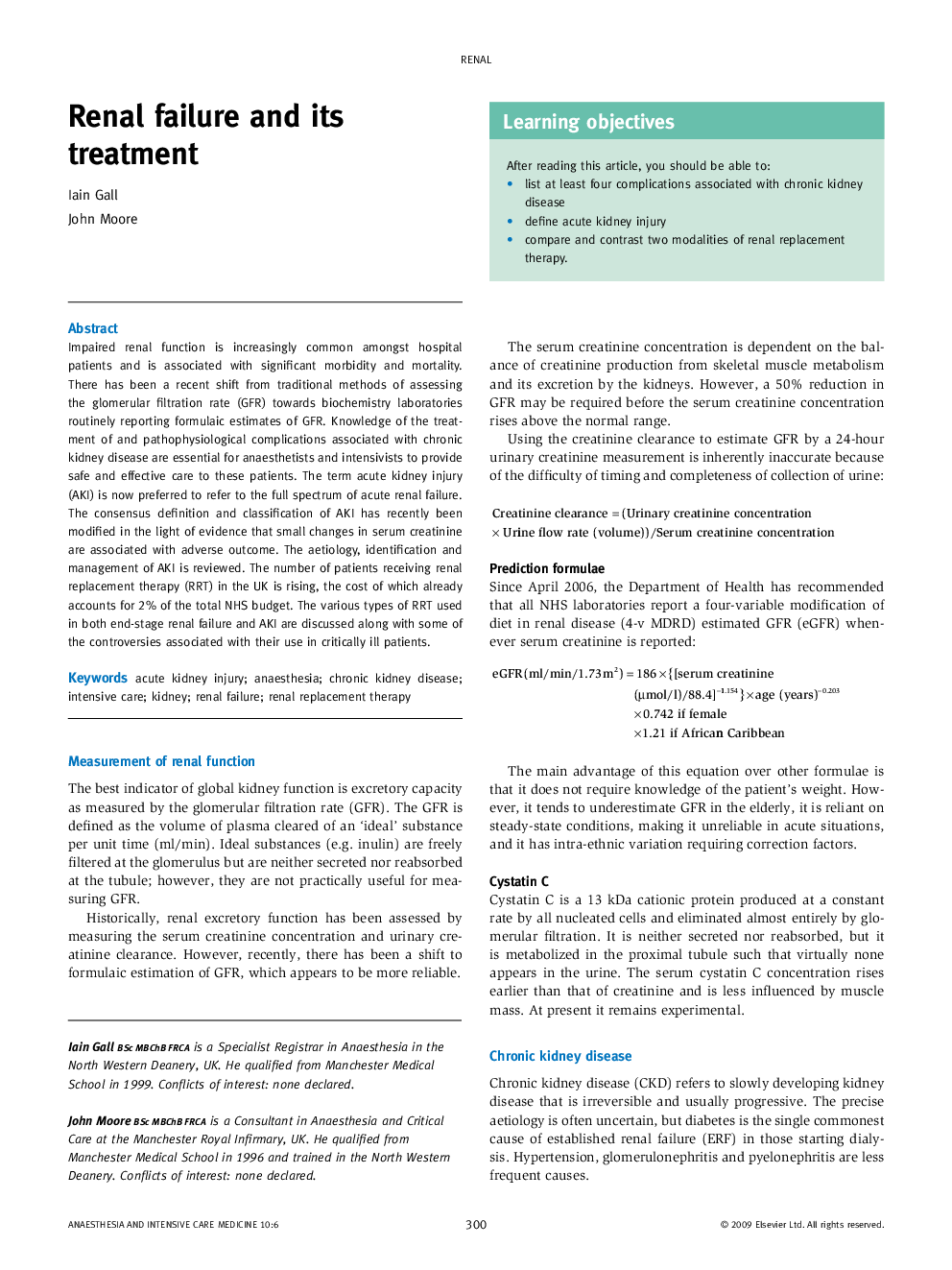| Article ID | Journal | Published Year | Pages | File Type |
|---|---|---|---|---|
| 2743549 | Anaesthesia & Intensive Care Medicine | 2009 | 7 Pages |
Impaired renal function is increasingly common amongst hospital patients and is associated with significant morbidity and mortality. There has been a recent shift from traditional methods of assessing the glomerular filtration rate (GFR) towards biochemistry laboratories routinely reporting formulaic estimates of GFR. Knowledge of the treatment of and pathophysiological complications associated with chronic kidney disease are essential for anaesthetists and intensivists to provide safe and effective care to these patients. The term acute kidney injury (AKI) is now preferred to refer to the full spectrum of acute renal failure. The consensus definition and classification of AKI has recently been modified in the light of evidence that small changes in serum creatinine are associated with adverse outcome. The aetiology, identification and management of AKI is reviewed. The number of patients receiving renal replacement therapy (RRT) in the UK is rising, the cost of which already accounts for 2% of the total NHS budget. The various types of RRT used in both end-stage renal failure and AKI are discussed along with some of the controversies associated with their use in critically ill patients.
